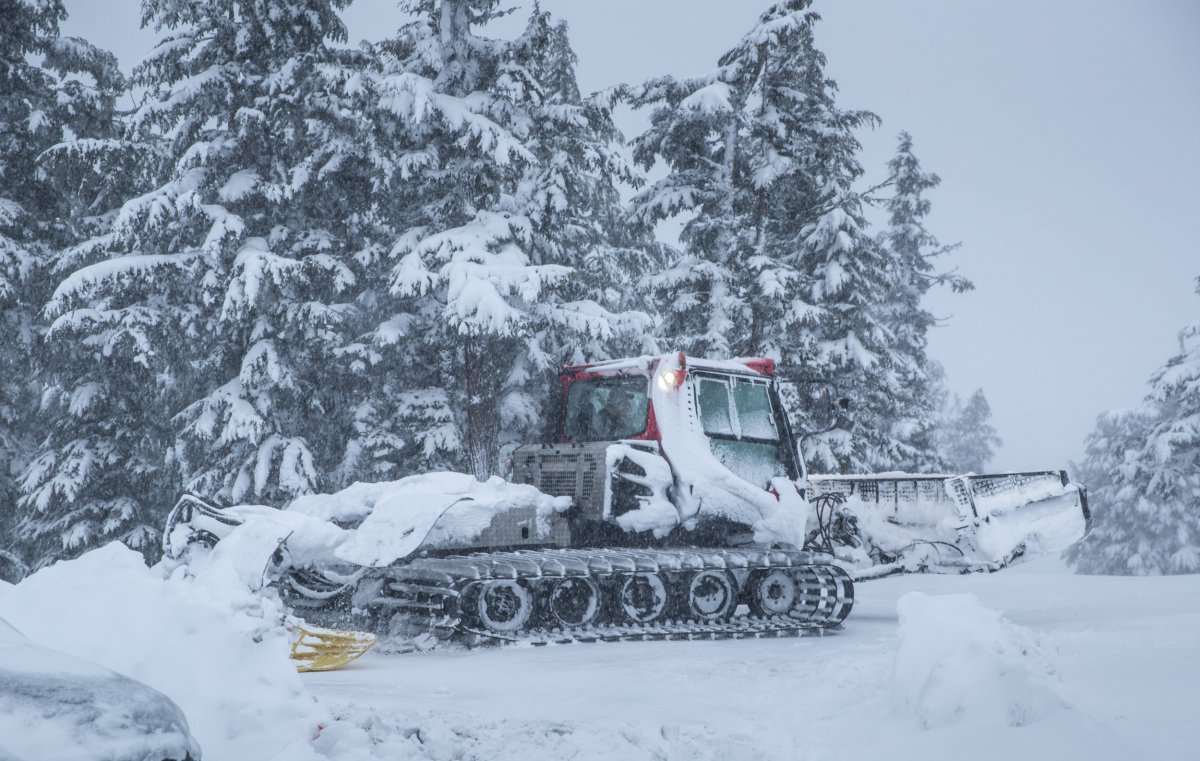Friends of mine said it was snowing hard in Mt. Shasta City which is around 3500 feet so it makes sense that you need chains 3 miles before Dunsmuir. However, if conditions get really bad during the night sometime often they close Interstate 5 at Fawndale Rd. in Redding
begin quote from:
https://www.newsweek.com/winter-storm-warning-whiteout-conditions-1988107
Newsweek:
Winter Storm Warnings for Six States With 'Whiteout Conditions' Possible
Swathes of the country are bracing for fierce winter storms this week, with snow in some areas set to cause hazardous whiteouts.
Wintry conditions are hitting hard in various parts of the U.S., but the National Weather Service (NWS) has issued winter storm warnings for six states in particular. Parts of North Dakota, Oregon, Alaska, Idaho, Washington, and California are all included in the string of alerts issued by the government agency on Tuesday.
The news comes as two powerful weather systems are due to collide and combine forces this week, when an "atmospheric river" and a "bomb cyclone" meet in the Northwest. The atmospheric river (water vapor in the sky) will dump rain and snow, while the bomb cyclone (a rapid drop in pressure) will crank up the storm's intensity. Meanwhile, other areas of the country will face their own winter storms.
More From Newsweek Vault: 5 Steps to Build an Emergency Fund Today

Forecasters at the NWS issued various "urgent" warnings on Tuesday that whiteouts may be possible in some areas in Oregon and California due to the storms.
Whiteouts refer to a dangerous drop in visibility—which can be reduced to near zero in some conditions—caused by blizzards or by previously-fallen snow being blown around by wind.
More From Newsweek Vault: Online Banks vs. Traditional Banks: Learn the Differences
"Whiteout conditions are possible and will make travel treacherous and potentially life-threatening," the NWS warned in a briefing affecting Siskiyou County (including Interstate 5 and Highway 97 near Weed), Etna Summit, and Scott Mountain Pass in California.
Snow will accumulate "between 6 and 18 inches, with up to 2 feet over higher mountains. Winds [will be] gusting as high as 70 mph over higher exposed terrain." Evening commutes on Tuesday are likely to be particularly dangerous, while strong winds may bring down trees and power lines.
Similar whiteout warnings were also issued for the south central Cascades and Diamond Lake in Oregon—and Crater Lake in California. Portions of Highways 62, 138, and 230 will also be affected. Tuesday morning commutes through these areas are likely to be particularly risky. Besides the whiteout conditions, "roads, and especially bridges and overpasses, will likely become slick and hazardous."
More From Newsweek Vault: What Is an Emergency Fund?
A host of other advisories and various winter storm warnings were in place throughout the rest of the state and residents were advised to keep an eye on their local weather forecasts.
Meanwhile, winter storm warnings were also in effect for a string of counties in North Dakota, including Benson, Burke, Cavalier, Ramsey, Towner, Bottineau, McHenry, Pierce, Renville, Rolette and Ward.
Alaska's weather warning alerted residents to snow accumulations of up to 10 inches, with winds as high as 45 mph, and visibility of just half a mile in blowing snow. The weather warning covered Noatak Valley and Lower Kobuk Valley and remained in place until 3 p.m. on Wednesday.
Idaho's winter storm warning covered the Big Lost Highlands/Copper Basin, the Sawtooth/Stanley Basin, and the Sun Valley region. Residents were warned to brace for snow and gusty winds from Wednesday to Friday.
Washington has a storm warning in place from Tuesday through Wednesday with heavy snow and fierce winds affecting the Cascades and swathes of the north, center and east of the state.
Over in California, a winter storm warning remains in place from Tuesday afternoon until Wednesday afternoon, in portions of southern Trinity to the east of Forest Glen and Hyampom and above around 3,500 feet, including portions of Highway 36. Further warnings cover most regions in the north of the state.
The NWS advised residents to avoid all unnecessary journeys, adding: "If you must travel, keep an extra flashlight, food, and water in your vehicle in case of an emergency."
